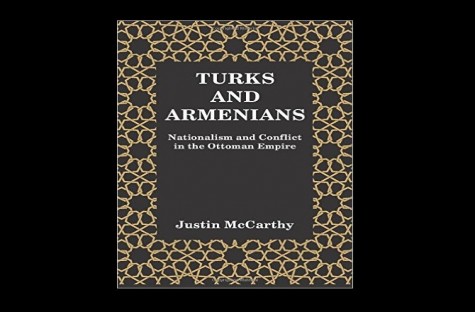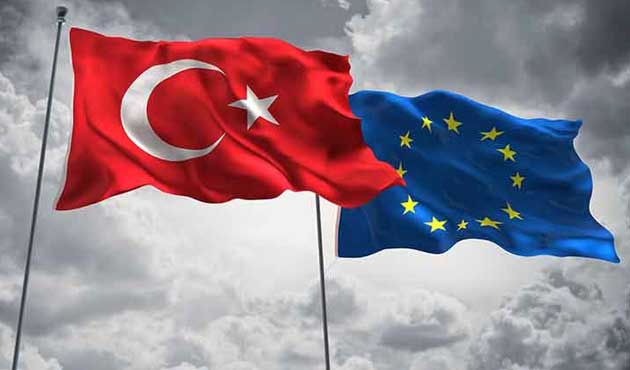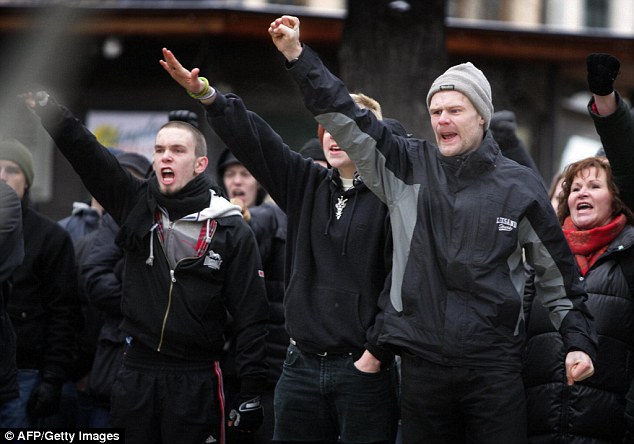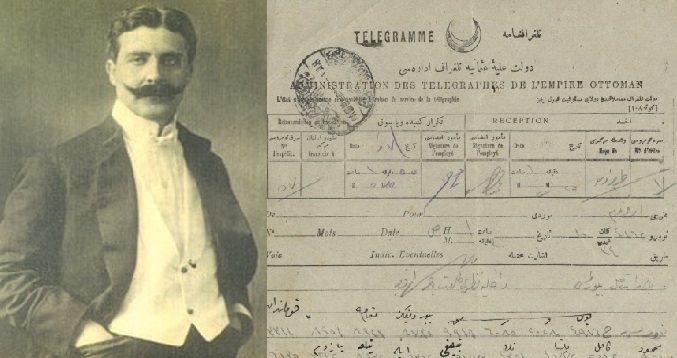Chapter Four: European Intervention, Ottoman Pacification
In the fourth chapter titled “European Intervention, Ottoman Pacification”, Justin McCarthy mainly elaborates on European Intervention in Ottoman affairs regarding Armenians before World War I. This chapter clearly exposes how the European powers watched over Armenian rebels and how the Ottoman government’s hands were tied by the Europeans when it tried to stop the Armenian rebel activities and maintain order in eastern Anatolia.
First of all, Prof. McCarthy underlines that European powers claimed the right to act as protectors of the Armenians in the Ottoman Empire and saw the 1878 Treaty of Berlin as a justification for their constant interference in Ottoman affairs concerning Armenians. He points out that Europeans forced the Ottoman government to implement reforms in favor of Armenians in eastern Anatolia, which actually aimed to weaken government’s sovereignty in the region by giving Armenians power. Indicating that the European powers, in essence, intended the dissolution of the Empire, McCarthy argues that the Empire was saved due to disagreements among them.
Prof. McCarthy acknowledges that, judged by modern standards, the Ottomans did not enforce satisfactory government in eastern Anatolia. The region was indeed not secure for both Muslims and Armenians and the economic situation in the region was poor. On the other hand, McCarthy points out that the actions of the Armenian revolutionaries prevented the government to make reforms. Also, poverty of the Ottoman state impeded any reforms or improvements. However, as Justin McCarthy clearly puts it in this chapter, Europeans were not helping in this respect.
This chapter clearly shows that Europeans constantly acted in favor of Armenians. Muslim attacks on Armenians were always portrayed as Muslim murders of Christians and “atrocities”, even if in some cases it was the Armenian rebels who attacked first and provoked Muslims. When Muslims attacked Armenians, European consuls and ambassadors complained to the Ottoman government, demanding action. On the other hand, if Muslims were attacked by Armenians, Europeans did nothing.
Furthermore, Prof. McCarthy points out that the Ottoman government was in a near impossible position when it attempted to stop and prosecute Armenian rebels due to continuous interference by Europeans. Arrests of rebels were reported in the European press as Ottoman oppression. Pro-Armenians demanded the release of the rebels convicted of treason which they called “political prisoners.” McCarthy provides several examples where Armenian rebels, due to pressures especially by the British, were granted amnesty, which eventually emboldened the rebels and led them to believe that they can act with impunity. He also mentions that Russia in particular prevented the Ottomans to prosecute rebels by claiming that they were Russian subjects and therefore, could not be tried and punished by Ottoman courts. Correspondingly, McCarthy reveals Europe’s hypocrisy and double standards. In Europe, such rebels guilty of treason, would have been punished severely. Having said that, the Europeans were making it nearly impossible for the Ottomans to prosecute the Armenian rebels.
Prof. McCarthy highlights poverty and lack of resources as the key for many of the problems in Eastern Anatolia. 1877-78 Russo-Turkish war had damaged the Ottoman Empire both militarily and economically. As a result of the war, the Empire had lost manpower, supplies and productive territory and was forced to pay Russians ruinous amounts of indemnities, although it was the Russians who started the war. Furthermore, the fear of another Russian attack had forced the Ottoman government to make huge military expenses and it couldn’t spare soldiers for internal security. European powers also worsened the economic state by enforcing capitulations. These factors prevented the government to improve the lives of the population in Eastern Anatolia.
However, Prof. McCarthy points out that the Ottoman government did what it can to ensure the security of Armenians and appease them. Most importantly, more Armenians were included in the government and even in security forces in order to make them feel more loyalty to the government. Also, in order to maintain order in eastern Anatolia and preventing conflicts, the government also tried to take measures such as assigning more soldiers to internal security, despite its economic burden, to protect Armenians in their conflicts with several Kurdish tribes.
Ultimately, Prof. McCarthy indicates that Ottomans had tried to improve the situation in eastern Anatolia and in fact, in the 1890s, conditions had started to improve and order was gradually restored. However, at the same period, ironically, Armenian revolutionaries had begun their campaigns against the Ottomans. Therefore, it is possible to say that the Europeans, although indirectly, prevented the restoration of peace and order in the region due to their support to Armenian rebels.

 CHAPTER BY CHAPTER SYNOPSIS AND REVIEW OF TURKS AND ARMENIANS: NATIONALISM AND CONFLICT IN THE OTTOMAN EMPIRE BY JUSTIN MCCARTHY - 4
CHAPTER BY CHAPTER SYNOPSIS AND REVIEW OF TURKS AND ARMENIANS: NATIONALISM AND CONFLICT IN THE OTTOMAN EMPIRE BY JUSTIN MCCARTHY - 4
 THE EUROPEAN PARLIAMENT’S RESOLUTION REGARDING THE 2014 PROGRESS REPORT ON TURKEY
THE EUROPEAN PARLIAMENT’S RESOLUTION REGARDING THE 2014 PROGRESS REPORT ON TURKEY
 COMMEMORATION OF THE 100TH ANNIVERSARY OF THE 1915 EVENTS AT ST. PETER’S BASILICA
COMMEMORATION OF THE 100TH ANNIVERSARY OF THE 1915 EVENTS AT ST. PETER’S BASILICA
 EU'S INCORRIGIBLE BIAS AND ANTAGONISM AGAINST TURKEY HAS BEEN REVEALED
EU'S INCORRIGIBLE BIAS AND ANTAGONISM AGAINST TURKEY HAS BEEN REVEALED
 FROM A MISNOMER TO MISDESIGN: POSSIBLE EU CUL-DE-SAC IN BALKANS
FROM A MISNOMER TO MISDESIGN: POSSIBLE EU CUL-DE-SAC IN BALKANS
 NEO – NAZISM IS GAINING STRENGTH IN THE NORDIC COUNTRIES
NEO – NAZISM IS GAINING STRENGTH IN THE NORDIC COUNTRIES
 WHAT ARE THE PROSPECTS FOR ARMENIA? THE END OF “KARABAKH CLAN” OR “OLD WINE IN A NEW BOTTLE”?
WHAT ARE THE PROSPECTS FOR ARMENIA? THE END OF “KARABAKH CLAN” OR “OLD WINE IN A NEW BOTTLE”?
 FROM SMOKING GUN TO MUDDIED WATERS: THE ALLEGED TELEGRAM OF BAHAEDDIN ŞAKIR
FROM SMOKING GUN TO MUDDIED WATERS: THE ALLEGED TELEGRAM OF BAHAEDDIN ŞAKIR




























